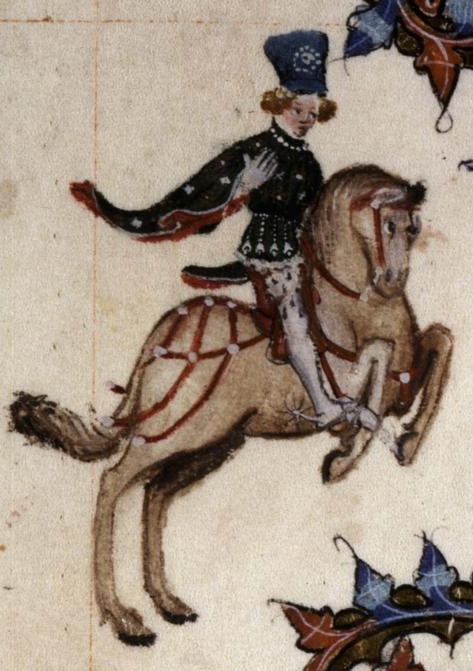squire on:
[Wikipedia]
[Google]
[Amazon]

 In the
In the

 In the
In the Middle Ages
In the history of Europe, the Middle Ages or medieval period lasted approximately from the 5th to the late 15th centuries, similarly to the post-classical period of global history. It began with the fall of the Western Roman Empire and ...
, a squire was the shield- or armour
Armour (Commonwealth English) or armor (American English; see American and British English spelling differences#-our, -or, spelling differences) is a covering used to protect an object, individual, or vehicle from physical injury or damage, e ...
-bearer of a knight
A knight is a person granted an honorary title of a knighthood by a head of state (including the pope) or representative for service to the monarch, the church, or the country, especially in a military capacity.
The concept of a knighthood ...
. Boys served a knight as an attendant, doing simple but important tasks such as saddling a horse or caring for the knight's weapons and armour.
Terminology
''Squire'' is a shortened version of the word ''esquire
Esquire (, ; abbreviated Esq.) is usually a courtesy title. In the United Kingdom, ''esquire'' historically was a title of respect accorded to men of higher social rank, particularly members of the landed gentry above the rank of gentleman ...
'', from the Anglo-French itself meaning ("shield bearer"). Other terms include ''scutifer'' and the Latin ("arms bearer").
Use of the term evolved over time. Initially, a squire could be a knight's servant that fought with his lord. It could also refer to sub-knightly Men-at-Arms and was used interchangeably with valet. Over time it referred to a broad social class of men, just below the rank of knight. Eventually, a lord of the manor
Lord of the manor is a title that, in Anglo-Saxon England and Norman England, referred to the landholder of a historical rural estate. The titles date to the English Feudalism, feudal (specifically English feudal barony, baronial) system. The ...
might come to be known as a "squire".
Duties
A squire was typically a young boy, training to become a knight. A boy became apage
Page most commonly refers to:
* Page (paper), one side of a leaf of paper, as in a book
Page, PAGE, pages, or paging may also refer to:
Roles
* Page (assistance occupation), a professional occupation
* Page (servant), traditionally a young m ...
at the age of 7, then a squire at age 14. Squires were the second step to becoming a knight, after having served as a page. A squire was responsible for taking care of the horse and arms of his knight. He was to take care of the knight’s armor, ensuring it was well-maintained, cleaned, and ready for battle. This also included helping the knight put on his armor. The squire was also responsible for grooming and saddling the knight’s horses. Squires would accompany their knights into battle. Outside of battle, a squire would serve his lord by making his bed, waiting on him during meals, and carving the knight's meat. A lord with multiple squires would give each squire a specific role such as ''squire of the chamber''.
Many squires were hired servants with no known pedigree. Despite being a servant, it was a high status job and could serve as training for future knights.
While many squires were young men who would eventually become knights, others were of too low a rank to become a knight. These squires often still owned a manor. Some squires who were capable of becoming knights remained squires, resulting in two classes of landholding squires. A third class of squire were squires based on employment, their lord providing their military equipment. All three classes were official recognized by the tax law of 1379.
See also
* Silahdar AghaReferences
{{Authority control Titles Gentry Gendered occupations Knights Medieval children